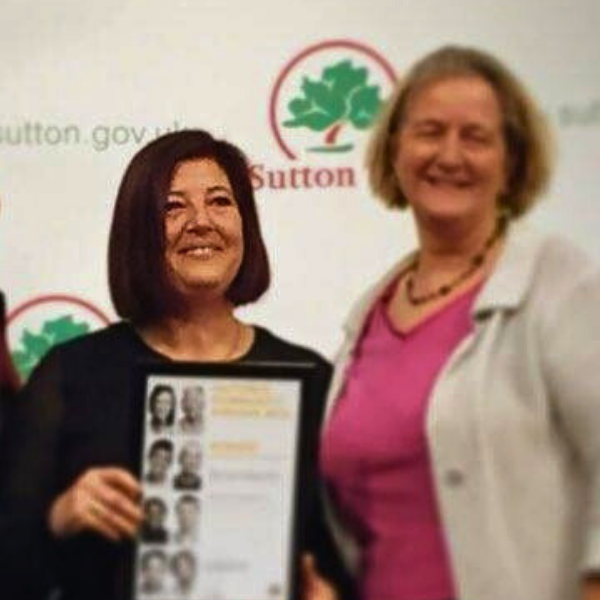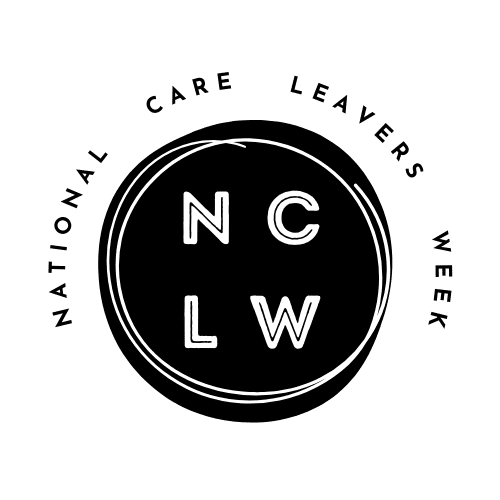
Whilst continuing to volunteer as a MAPS Mentor, Teresa subsequently joined the staff at Volunteer Centre Sutton, working as a MAPS Practitioner. Find out more about MAPS Mentoring...

What made you become a MAPS Mentor?
“I always knew I wanted to support Care Leavers because for me that’s where the support dropped off. I was a Care Leaver. I left my children's home at 16 to live independently in bedsit land in a homeless hostel. I was really lucky that an older resident took me under her wing, taught me how to do my washing, taught me how to budget and taught me how to keep a home. She was like a mentor to me but I didn’t know it existed at the time.”
You’ve worked with a lot of Children in Care and Care Leavers. For those leaving care, what do you think are the main challenges?
“As a Child in Care, you’re very well financially supported and you’re also being looked after and cared for. As a Care Leaver, you’re now on a very limited budget. You may well be receiving benefits and for the first time you’re in control of the money. You have to make those choices: ‘am I going to eat or am I going to pay my rent?’. There are too many stories of young people being burgled after leaving their front doors open because they lose their key and that’s going to cost them £10.”
In the year ending 31st March 2022, over 11,000 children left care on their 18th birthday.
These young people are expected to live much more independently at a much earlier stage than their peers. Once they have left care, these young people are not necessarily able to rely on the support of their former carers in the same way that other young people are able to turn to their parents for support.
In stark contrast to the huge numbers of 18-year-old care leavers, ONS data shows that the average age for young people to leave the parental home is more than five years later, at over 23 years of age.
“The change from being a Child in Care to a Care Leaver can be very abrupt. If you’re in a residential unit you can’t stay there over 18. They haven’t necessarily been prepared for independent living in a gradual, natural way and at their pace, that you might see for someone living with their birth family. I think there’s a belief in the care system that ‘somebody else is doing that’.
Care Leavers may have been looked after by other people, other than whom they wanted to look after them. The Care Leaver might be thinking ‘so it now comes to 18, you’re giving me independence and I can’t wait to go. I might not actually want to listen to adults anyway’.
How do you think MAPS Mentoring can particularly help Care Leavers?
“A MAPS Mentor can be ‘their person’. It helps them because its their agenda. Its what the young person wants to get out of Mentoring not what the Mentor wants to get out of the young person. MAPS Mentoring is young person led. If its important to the young person, its important to the Mentor.
Particularly for Care Leavers, Mentoring support is about so many things. Not just life skills and practical stuff but countering the isolation they face. Who do they have to ask?
One young person moved into her accommodation just as the summer festival season was kicking off. Unfortunately, she chose to spend the money on going to festivals instead of paying the rent, on the understanding that as she was not staying there, she didn’t have to pay the rent. Nobody had explained to her that she still had to pay her rent. At that time, not having a person, a friend – the care side of it – to sit you down and say “no this is important, this is what we need to do”. Who does that?
The system is overstretched and not perfect and its that much harder for support workers to make a connection with the young person and be a consistent presence. One young person during her 12 months of mentoring had 5 different support workers and the only constant relationship was with her Mentor.
For my very first young person I Mentored, Mentoring was about giving him an alternative to vodka and weed. Our young people can’t turn up for Mentoring if they’ve used, so he didn’t use.”
"It was the worst thing ever. I was self-destructive because I was put into an environment living on my own and coming from foster care, with very minimal support. Then I got a Mentor who helped me with budgeting and drug referrals. There was no one to talk to until I had a Mentor." M has been in care since he was 9 years old and was moved into semi-independent living at 17.
What do you think are the most important outcomes for Care Leavers?
“One of the most important outcomes is for them not to become homeless. And that’s a very easy and a very quick ride for them. If they’re not budgeting, they're not going to pay their rent. If you don’t pay your rent, you can be evicted and become homeless. Homelessness could lead to criminality. We all have to eat so even if you’re only going to steal to eat, you're still stealing. For the Care Leavers we work with, its that individual and consistent support. What do they need and what are they at risk of?”
1 in 4 homeless people are care experienced
Young care leavers are ten times more likely to have received an immediate custodial sentence than young people who have not been in care
“Another important outcome is to connect them within the community that they live in, so they feel part of the community, and that there’s a place for them, because up until then they’ve had no choice of where they’re placed. We want our young people to feel connected and that they can contribute to the community they live in. That would be enough for me.”
“Mentoring made me a better human being.” M
“As M says, he looks at himself as a good person. He was always a good person but nobody told him that. He had no one validating that each week. He didn’t have anything to measure it against. He’s now in his forever home, he’s no longer taking drugs or involved in risky behaviour, and he’s more settled.”
You might also be interested in Ethan's Story, a young Care Leaver who has been connected to MAPS Mentoring for over 10 years.






